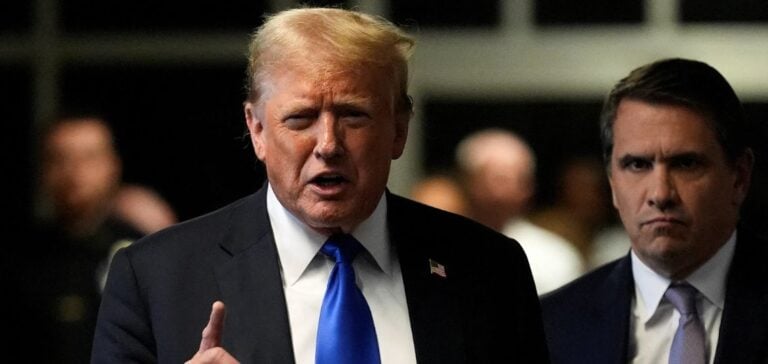Donald Trump’s return to the presidency of the United States raises hopes within the nuclear sector, anticipating a favorable policy approach. Experts and industry actors agree on a continuity of support for nuclear energy, though the budgetary strategy remains uncertain.
Clean energy tax credits introduced under the Inflation Reduction Act (IRA) are likely to be reassessed. According to Citi Research analysts, nuclear-dedicated incentives should remain intact despite potential reductions in benefits for electric vehicles and renewable energies.
Reinforced support but under constraints
The nomination of Chris Wright as Secretary of Energy could confirm this commitment. Known for his expertise in natural gas and his role on the board of Oklo, a startup specializing in advanced reactors, Wright could become a key ally for the sector. However, some observers, like Joyce Connery, former official for civilian nuclear energy under Barack Obama, question the administration’s ability to maintain financial promises made during Biden’s presidency.
Additionally, bipartisan support in Congress for nuclear energy remains a strong foundation. Brad Williams, policy advisor at the Idaho National Laboratory, emphasized that despite budgetary uncertainties, initiatives for modular reactors and uranium enrichment projects should continue. However, competing priorities and financial constraints may limit available resources.
Towards regulatory simplification
The sector could also benefit from ongoing regulatory simplifications initiated in recent years. The Nuclear Regulatory Commission (NRC) is working to adapt its framework for small reactors and advanced technologies, a process backed by bipartisan legislation.
Patrick White, Research Director at the Nuclear Innovation Alliance, believes that the NRC will continue improving its efficiency. Adjustments might occur depending on the outcomes of the ADVANCE Act, aimed at streamlining licensing procedures.
The strategic role of domestic uranium
In terms of supply, domestic uranium production could become a strategic priority. Potential classification of uranium as a critical mineral would simplify the permitting processes for extraction facilities. Additionally, the continuation of the ban on importing enriched uranium from Russia, though moderated by waivers, reinforces this perspective.
However, potential increases in tariffs on Chinese uranium could drive up costs for nuclear operators like Constellation Energy, which have diversified their supply sources in recent years.





















